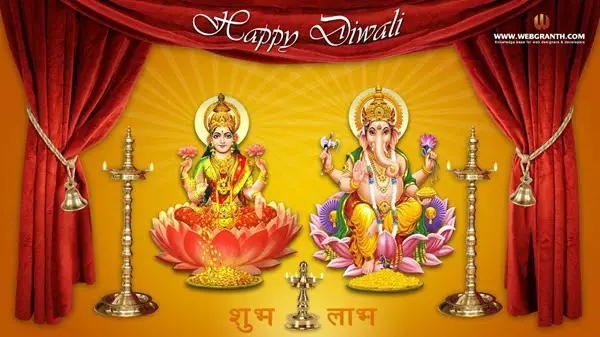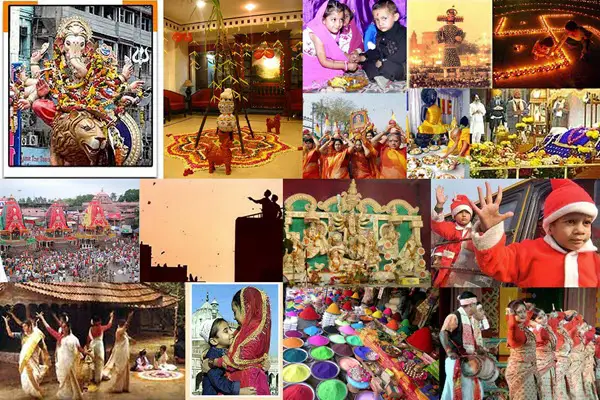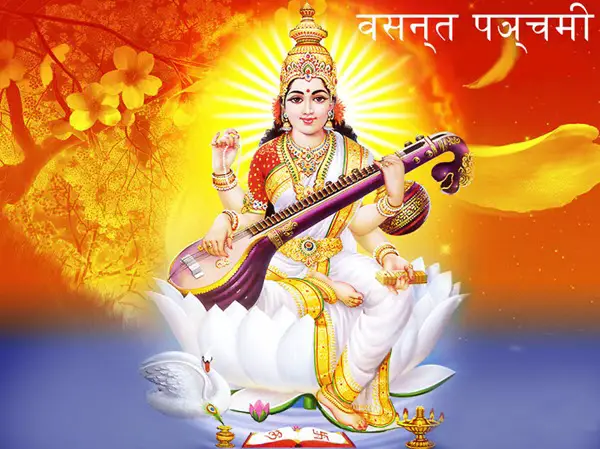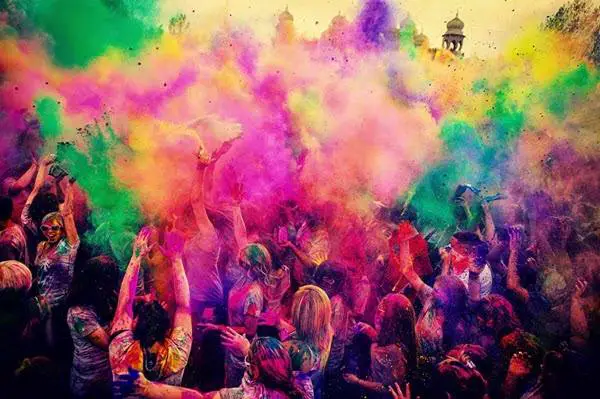Festivals are an important aspect of the Hindu Religion. One such important, popular, and widely celebrated festival is “Shri Ram Navami.” It is celebrated to mark Lord Shri Ram’s birth, considered the seventh incarnation (“Avatar”) of Lord Vishnu. He is one of the oldest avatars of Lord Vishnu, having a human form.
Lord Ram is also known as “Maryada Purushottam” – the one who is divinely blissful and who gives joy to others. He was born in Ayodhya to King Dasharatha and Queen Kaushalya. This holy festival is celebrated in the Shukla Paksha of the Navami Tithi (the ninth day) in the Hindu month of Chaitra and usually falls in March or April.
When had Lord Ram Born? Lord Ram Birth Date
Ram Navami also marks the end of the nine-day-long Chaitra Navratri Festival. According to popular beliefs, this holy day is also observed as the day of Lord Ram and Goddess Sita’s marriage and is often referred to as “Kalyanotsavam.”
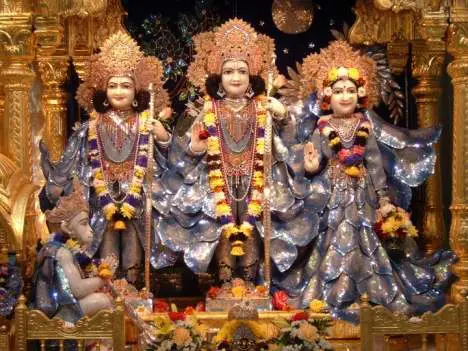
Table of Contents
The Background of Shri Ram Navami
Lord Ram is an incarnation of God Vishnu, who took birth to establish “Goodness” and “Dharma” on this Earth. He is regarded as the perfect person, “Maryada Purushottam,” and has the highest qualities of compassion, kindness, integrity, and righteousness. His rule over Ayodhya is an example of perfect governance, often referred to as “Ramarajya.”
In fact, Ayodhya became the capital of the kingdom established by the king-rishi Manu. It reached the pinnacle of prosperity under the rule of King Dasharatha.
However, despite being a great king, Dasharatha was not happy. This was because he had no children. He then approached Rishis (saints) for advice, who suggested performing the sacred “Ashwamedha Yagna,” which consisted of difficult rituals. Finally, the Yagna was performed, which turned out to be a great event in Ayodhya.
At the end of this ceremony, the Rishis offered the fire and prayed to Lord Brahma. During that time, it so happened that the demon king of Lanka, Ravana, had become a huge terror for people.
Everybody wanted liberation from his menace. He had acquired the boon that he would not be killed at the hands of gods, Gandharvas, Yakshas, or demons. However, he did not include men in his potential slayers. So, Lord Brahma declared that Ravana would be killed at a man’s hands.
Hearing this prophecy, all the “Devas” went to Lord Vishnu and pleaded with Him to take Avatar (birth) as a son of king Dasharatha to liberate all the people from the cruel rule of Ravana. Lord Vishnu accepted their request and assured them that he would soon be born as a son to King Dasharatha and Queen Kaushalya.
When Dasharatha’s Yagna came to an end, a divine figure appeared over the Kund and offered him a “Payasam” (divine beverage). This payasam was given to his three queens, Kaushalya, Kaikayi, and Sumitra. In due course of time, Lord Ram was born to Kaushalya; Kaikayi gave birth to Bharat, and Sumitra to Laxman and Shatrugna.
According to Hindu Scriptures, Lord Ram is considered born in the Solar Dynasty, “Raghukula,” where “Raghu” means Sun and Kula means family descendants. He is also known by names such as Raghupati, Raghunath, and Raghvendra, which suggest the relationship of the Sun with God Ram’s worship. Lord Ram’s birth – “Ram Navami,” is celebrated when the Sun is at its maximum brilliance.
You may also like: Why Jhulelal Jayanti is Celebrated
Importance of Shri Rama Navami
Ram Navami celebrates the birth of Lord Ram, who is the human incarnation of God Vishnu. The different events in Lord Ram’s life have been described in the eternal classic scripture “Ramayan.”
He took birth to liberate people from the evil clutches of Ravana and established “Dharma” and “Goodness.” Therefore, he is not a hero who vanquished Ravana but is remembered and loved like a God who took birth to protect people from all evils.
He showed us that arrogance and lust lead to one’s downfall. In fact, Lord Ram is the true embodiment of an obedient son, a loyal brother, a perfect husband, and a great King. The great epic Ramayan depicts the whole story of Lord Ram. It is regarded as one of the most sacred scriptures in the Hindu Religion. It is held in high esteem irrespective of caste, creed, region, and religion.
Also check: Why Maha Shivratri is Celebrated
The Ram Navami Celebrations
Ram Navami Celebrations are unique in many ways and range from Pujas, Fasting, and Bhajans programs to Ratha Yatras and Pandal programs. Bhajan programs are organized at homes and also in Temples. Bhajans are sung in praise of Lord Ram, Sita, Laxman, and Shri Hanuman.
Chanting of the entire Ramayan is done, which usually takes 24 hours. Some people also undertake to chant “Sunderkand,” which describes the exploits of Hanuman and his meeting with Sita in Lanka and usually takes three hours.
On this special occasion of Ram Navami, people clean their homes and decorate pictures of Lord Ram, Sita, Laxman, and Hanuman. People offer flowers to the deities and keep incense sticks before them. An Elaborate Puja ceremony is performed, including the singing of Bhajans and
“Aarti” of Lord Ram. Some popular Ram Bhajans include:
राम रामेति रामेति रमे रामे मनोरमे ।
सहस्रनाम तत्तुल्यं रामनाम वरानने ॥
‘Sri Rama Rama Rameti Rame Raame Manorame;
Sahasra nama tattulyam Rama nama varanane!’
At the end of Puja, “Prasad” is distributed to the gathering.
However, Ram Navami is celebrated in various parts of India; a special mention of Ayodhya is needed as it is Lord Ram’s birthplace. In Ayodhya, a huge fair is organized where thousands of devotees gather to celebrate the festival with full joy, enthusiasm, and devotion.
The fair continues for two days. Rathayatras are taken out from almost every Ram Temple carrying Lord Ram, Sita, Laxman, and Hanuman’s deities.
As we can see, Ram Navami is an important and popular festival in India. It reminds us that God is Supreme and inspires us to live a righteous life and move ahead on the path of “Dharma” and Goodness.
Ram Navami Date 2024
Ram Navami will be celebrated on 17th April 2024, Wednesday.
Ram Navami Madhyahna Muhurat: 11:03 AM to 01:38 PM
Navami Tithi Begins: 01:23 PM on 16th April 2024
Navami Tithi Ends: 03:14 PM on 17th April 2024

